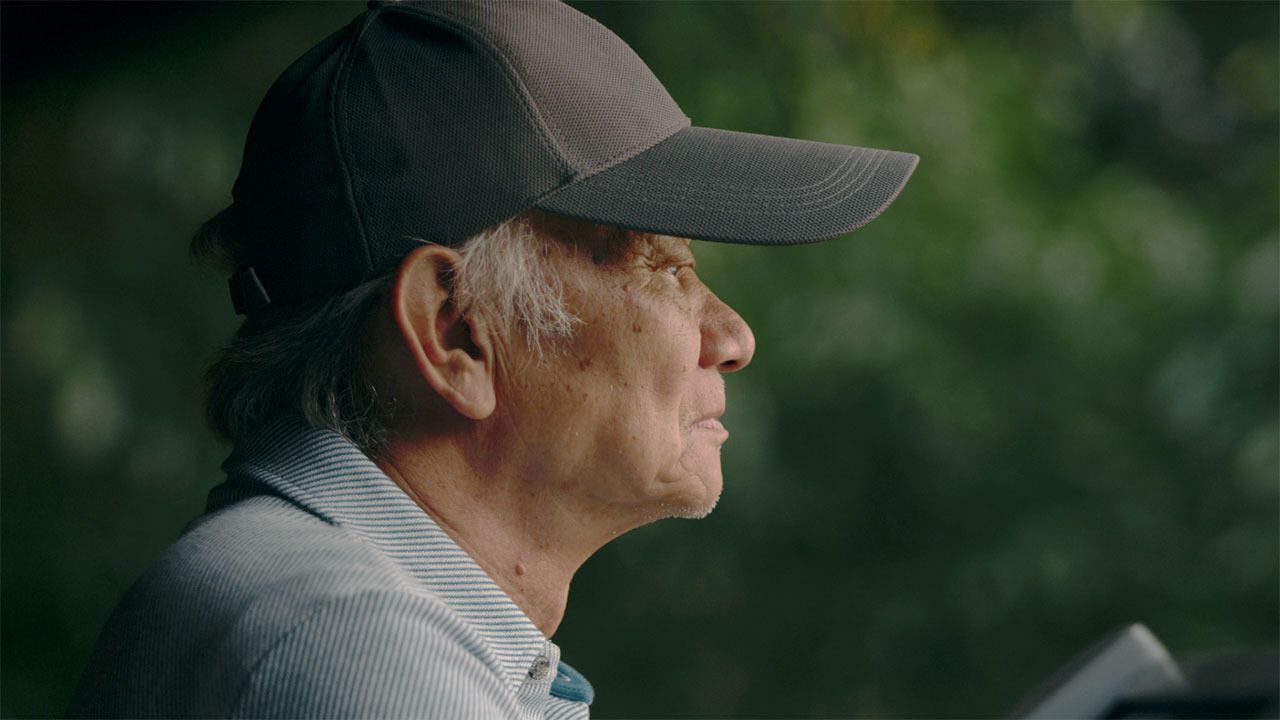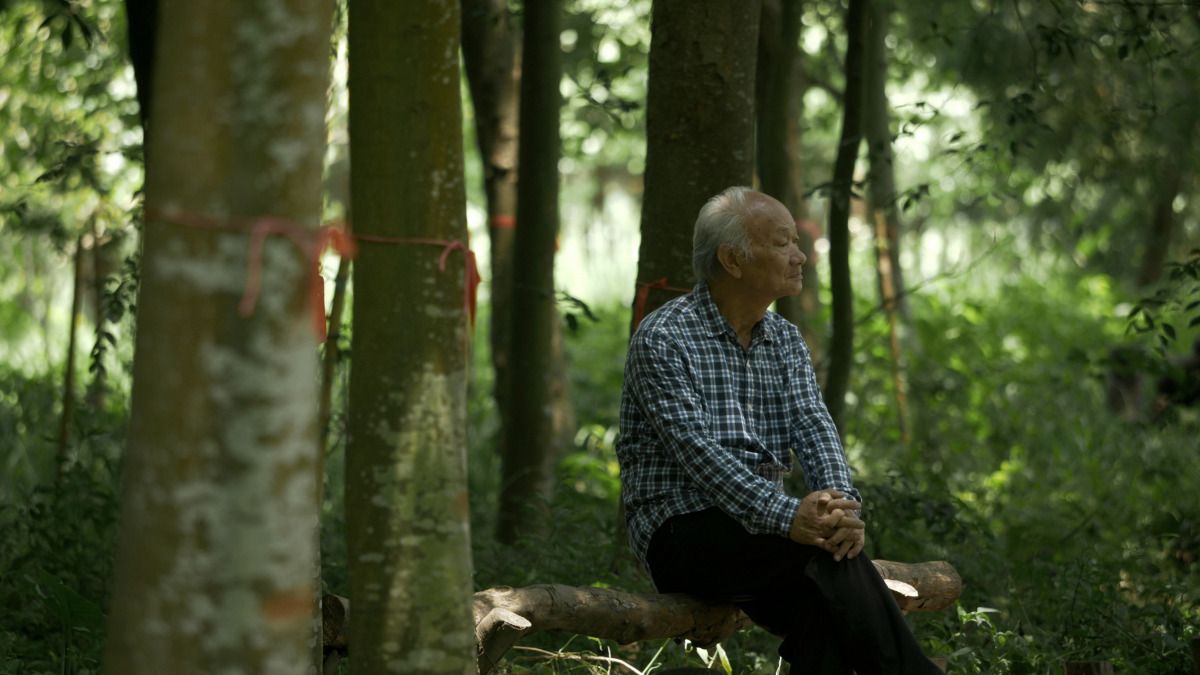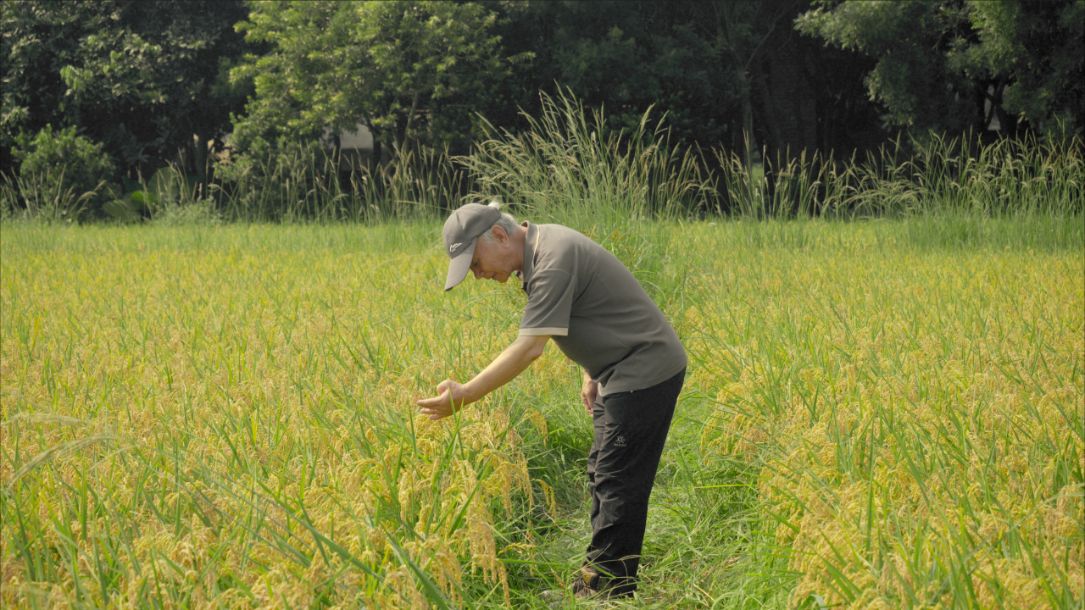
臺灣非營利專業書評媒體。Openbook編輯部將提供原生報導,文化觀察,人物採訪與國內外重大出版消息。 https://linktr.ee/openbooktaiwan
Topic" Shitian's writer Wu Sheng: "They are writing on the island" The realism and freehand brushwork of the documentary "He's Still Young" | Openbook Reading Journal

Written by | Huang Yiguan (Associate Professor, Department of Chinese Language and Literature, Changhua Normal University)
The spring in Xizhou, Changhua came to Wu Sheng's Sanheyuan again. The daily life of crops, accompanied by the little granddaughter babbling and the dog walking leisurely, kicked off the poet's life, just like a natural rhythm. In spring, summer, autumn and winter, the sun rises and the sun enters and rests, conforming to the breath of ecology, the call of the wild, and returning to the simplicity of being close to the land and the land.
From the recitation of the poet's most famous poem "Load", the three children are the father's sweetest concern, and the children's laughter is like spring. Director Lin Jingjie broke the topic from "Sweet Load". The picture is the season of planting rice. The mood of cultivating the next generation is like planting seedlings and taking care of them to grow. The camera takes Zhuang Fanghua, the poet's wife, who is mowing the farmland, and talks about another important work, "Farmer's Woman", which overlaps the lives of two generations of women, and highlights the weight of the two heavyweight peasant women in the poet's creation.
However, accidents in life always come unexpectedly. During the filming of the director, it was the Beinong Incident, and the original shooting outline was almost redone, as if it was arranged by God, testing how the director and the poet should deal with the trough of life. The anxiety and worry of the poet as a father, the outspokenness in front of the camera, all kinds of slander, humiliation and contempt almost made the poet unable to continue the filming of the documentary. The worried father could not resist gossip and rumors for his children, and the setbacks in life were ruthlessly devastated. At this terrifying turning point in life, the director faithfully recorded this process.

Entering the scorching summer, with the thick greenery of the idyllic, the poet guided the pure garden, introduced the Mao Tu and Wu Xin Shi, and had the ambition to plant trees all over the land to restore the vitality of the land. On the other hand, he is still disturbed by the political events in Beinong, his mood is uncertain, and the haze has not dissipated. Could literature be that redeeming role at this time? Write down the entire event process, and you will no longer be persistent after writing it. I was reminded occasionally by my daughter that I was in a miserable mood. In short, this suffering must be endured in a general way, and it must be shouldered.
This passage is paired with the poem "Sun Valley Field". The poet reads it aloud in authentic Taiwanese. The courtyard that was originally calm and sunny suddenly bursts with thunder, and the changing sky turns the Sun Valley Field into a terrified sports field in an instant. The setbacks and accidents of life are like unpredictable weather. Farmers who depend on the weather must know how to adapt to nature and deal with the sudden wind and rain indifferently. Faced with unsatisfactory experiences and low moods, learn to let go and accept with nature as a teacher. This father/poet/farmer's composite perspective runs through the entire documentary, gazing deeply at the country and his children and grandchildren.

In the chapters of the autumn and winter seasons, the director focuses on the poet's observation records of the land in his middle and late years - Zhuoshuixi Notes, and visits Wu Sheng and Zhuang Fanghua to track the life of Zhuoshuixi. From the upstream, midstream to downstream, the stone piers here witness the two people hand in hand when they were young, and they still rely on each other to this day. From Aowanda and Xiangtianzhen in the upper reaches to the last estuary, the green ecology gradually disappears, but Taiwan, which has abundant rainfall, is full of dry riverbeds. The few remaining plants struggled to survive.
Under the interpretation of the camera, the natural idyllic poems are not only lyrical idylls, but also full of hard struggle and struggle. The aerial camera sees the depleted water source, the exposed riverbed, climate change, the impact of the interception of the reservoir, the water Resources are about to be scarce, Zhongke is fighting for water, Guoguang Petrochemical and the rescue of white dolphins, the entanglement between ecology and economy. Various struggles are interspersed with Zhuoshuixi notes, and the affectionate gaze of the camera is like that of the anxious father, whose love for the land is beyond words. The poet said, please leave the study, walk into the vast fields, visit farmers, visit the beautiful countryside, intervene and confirm with actual footprints, and then reflect on the meaning of life.

The poet looked back on the way he created his creation. "Impression of My Hometown" was published in "Little Lion Literature and Art" edited by Yan Xian. He flew to Vancouver to visit Yan Xian, the literary leader at that time, and thanked him for his strong support in his creation. All published. When Yanxian read aloud in a magnetic voice, the two old friends talked about the past with a pot of tea, and the friendship of the century was touching.
The poet visited Nie Hualing who lived in Iowa again. The 90-year-old still greeted the poet with warm laughter, read his local poems together, and recalled the exchanges in the international Iowa writing workshop. The poet always wanted to go home. Here, the director presents how local feelings become more local and international.
Once again, I returned to the simple single-person dormitory in Iowa, and read love poems to my wife affectionately, every sentence was like a home letter. Wu Sheng cherished his wife's hand with an affectionate expression, and his wife was moved but still did not lose the girl's coquettish anger and said, "Now (the hand) is still very delicate!" Saliva and media noise, as well as the impetuous heart of peeping and watching the mentality of spectators.

The director presents the poet's pastoral symphony with childish voices, birdsong and cicadas chirping with poetic images, and the oyster fields with only bleak and dead branches are shown in a warning-like aerial shot, reminding to cherish this beautiful country. Taking the evolution of the four seasons as the warp and the Zhuoshui River as the weft, Wu Sheng's life course and ultimate concern are interwoven vertically and horizontally.
Life's encounters always have highs and lows. In the midst of various unsatisfactory events and ecological catastrophe struggles, the director interspersed the smooth and lyrical piano soundtrack at the right time, and the agitated guitar expresses his feelings, subtly combining "he is forever young" and "youth forever". Bit by bit, accompanied by the sound of the piano and singing. Family affection always nourishes the poet's heart, and echoes the sweet load from beginning to end, which is both the affection of relatives and the love of the country.
With the passing of the four seasons, life is like a cycle of seasons. Spring sprouts, summer grows strong, autumn harvests, and winter frosts over. Finally, the camera stares at the branches that grandchildren play with, symbolizing that nostalgia will be inherited from generation to generation. ●( The original text was first published on the OPENBOOK official website on 2022-09-07)
Like my work?
Don't forget to support or like, so I know you are with me..
Comment…